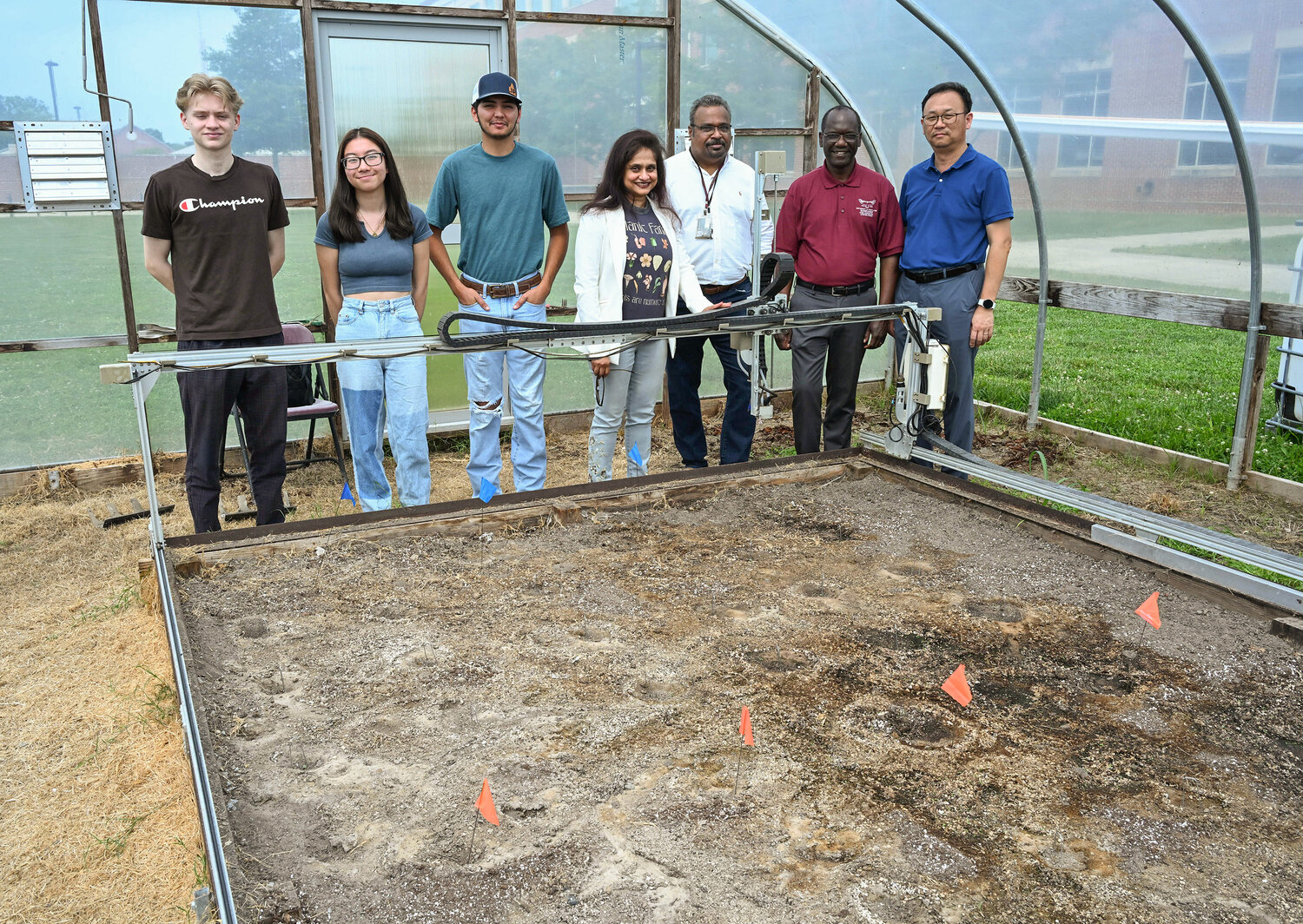Can robotic agriculture answer urban food security concerns? UMES to test FarmBot
PRINCESS ANNE — FarmBots are the latest in innovative agriculture, especially in urban farming where arable land is limited and space is at a premium.
The trending term refers to farming …

You must be a member to read this story.
Join our family of readers for as little as $5 per month and support local, unbiased journalism.
Already a member? Log in to continue. Otherwise, follow the link below to join.
Please log in to continue |
Can robotic agriculture answer urban food security concerns? UMES to test FarmBot
PRINCESS ANNE — FarmBots are the latest in innovative agriculture, especially in urban farming where arable land is limited and space is at a premium.
The trending term refers to farming with the precision and assistance of robotic agriculture for planting, watering and management of weeds. The emerging technology has the potential as an energy-smart and sustainable way of growing food in small spaces.
Robotic farming, particularly urban and indoor, is the focus of a U.S. Department of Agriculture three-year grant-funded project at University of Maryland Eastern Shore. Madhumi Mitra, a professor of biology and environmental science at UMES, is the lead on a $780,700 National Institute of Food and Agriculture grant geared toward discovery through research, experiential learning in STEM for UMES students and training for farmers through extension activities.
“Sustainable food production for a growing population with an energy-smart approach is the overall goal,” Dr. Mitra said. “During the course of the project, we will assist the Rappahannock Tribe in automating its greenhouse at the Tribal Center in St. Stephens Church, Virginia, with a computer-controlled robot for cultivating indigenous plants and medicinal herbs to enhance its agribusiness. The UMES research team and FarmBot company will also provide training on the cutting-edge technology.”
On the UMES campus, Dr. Mitra said, students will grow beets and carrots in a tunnel house FarmBot using rainwater irrigation to study the harvest characteristics, phytochemicals and micronutrients of the vegetables. Another experiment looks at the impacts of seaweed-based biostimulants (extracts from marine algae that help plants grow and defend themselves) on the growth and characteristics of indoor-grown spinach.
Market analysis to determine economic viability of the technology and stakeholder surveys measuring the willingness to adopt automated indoor farming technology will also be conducted.
“Adoption of resilient food systems that reduce food waste and strengthen food production in urban areas is crucial to addressing global population expansion and create self-sufficient farming,” Dr. Mitra said. “Implementing these systems not only enhances food security and minimizes environmental impact but also provides benefits to growers by promoting sustainable practices and reducing reliance on long supply chains.”
— Gail Stephens is the media association for agricultural communications at the UMES School of Agricultural and Natural Sciences, UMES Extension.






